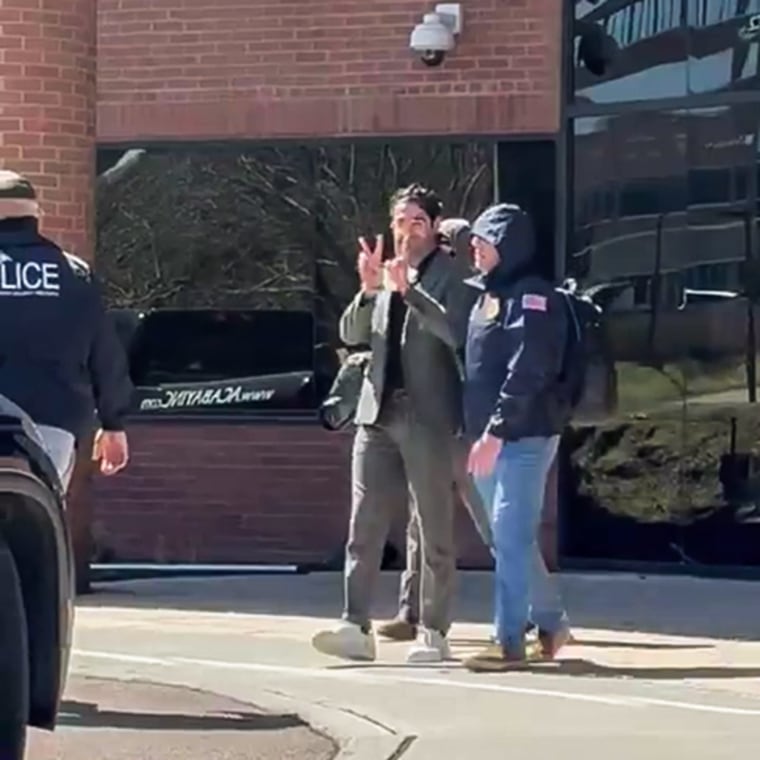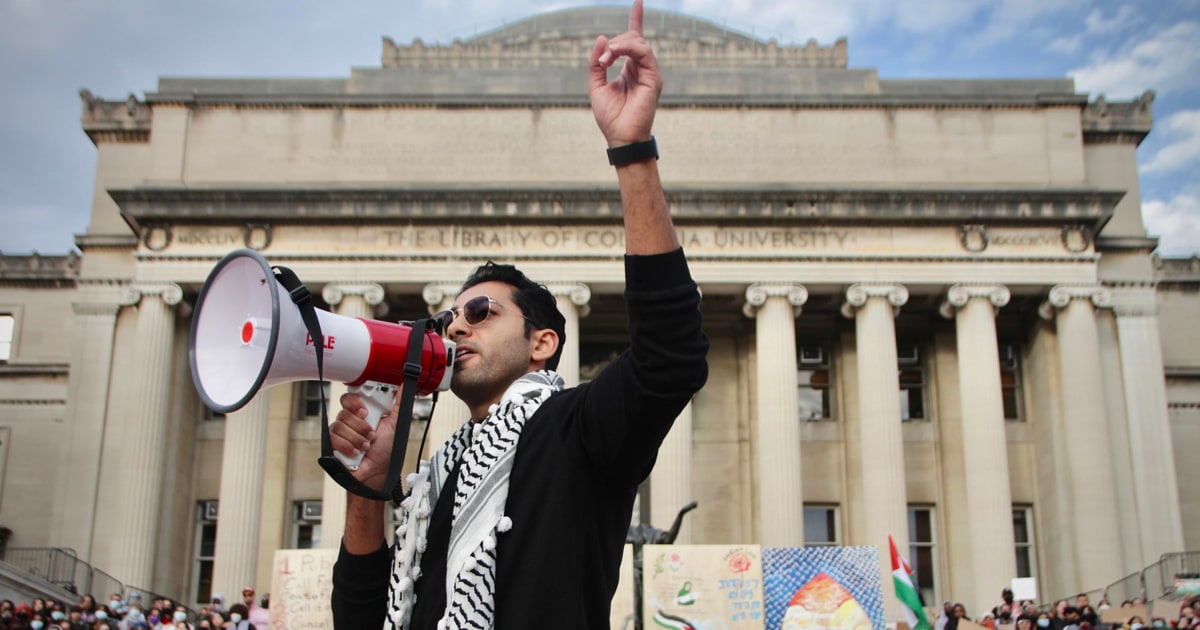A judge on Wednesday ordered that Columbia University student Mohsen Mahdawi be released from federal immigration custody.
Mahdawi, a 34-year-old U.S. permanent resident who was born and raised in a refugee camp in the West Bank, was detained April 14 by armed DHS agents in Vermont during his naturalization interview.
“I am saying it clear and loud to President Trump and his Cabinet: I am not afraid of you,” Mahdawi said Wednesday outside the Vermont courthouse after his release.
“What we are witnessing now and what we’re understanding is exactly what Dr. Martin Luther King has said before: Injustice anywhere is a threat to justice everywhere,” he added.
The Justice Department and the Department of Homeland Security did not immediately return requests for comment.
Mahdawi has been held at an Immigration and Customs Enforcement facility, the Northwest State Correctional Facility, in St. Albans, Vermont, since his arrest.
Secretary of State Marco Rubio justified Mahdawi’s detention, saying his “presence and activities in the United States would have serious adverse foreign policy consequences and would compromise a compelling U.S. foreign policy interest,” according to the DHS notice for Mahdawi to appear.
Mahdawi, who has a green card, was a key organizer of pro-Palestinian protests at Columbia last year.
Before Wednesday morning’s hearing in Vermont, the government and Mahdawi’s attorneys filed multiple court documents over his release, many of which were filed under seal but reviewed by NBC News.
In the government’s opposition to releasing Mahdawi, it said that law enforcement records indicated that Mahdawi has admitted “to being involved in and supporting antisemitic acts of violence” and “an interest in and facility with firearms for that purpose,” according to court documents reviewed by NBC News.

The government included two exhibits with their filing, which have been filed under seal. One of the exhibits, which NBC News has reviewed, is a 2015 report from the Windsor Police Department in Vermont, where a gun shop owner told officers that Mahdawi “supposedly told” the owner that he used to build machine guns “to kill Jews while he was in Palestine.”
In his declaration, Mahdawi said that he recalled visiting a gun shop in Windsor, Vermont, but that he is “absolutely certain that I never expressed the words the report falsely attributes to me, in that exchange or ever.”
“I am a peaceful person, and would never express wanting to harm or kill anyone,” he wrote. “I am heartbroken to have such appalling words, which stand in complete contrast to my philosophy on life and spiritual beliefs, misattributed to me.”
Mahdawi grew up in al-Fara, a Palestinian refugee camp in the West Bank, where much of his family remains, according to a court filing. When he was 15 years old, he was shot in the leg by an Israeli soldier, the document states. He came to the U.S. more than a decade ago before enrolling at Columbia in 2021, according to the filing.
The Trump administration has used similar justification to apprehend other foreign students, most of whom are from countries in the Middle East, who were active in the pro-Palestinian protests at college campuses last year or who have been critical of Israel.
On March 8, immigration authorities detained Columbia graduate student Mahmoud Khalil, who helped lead student protests against the war in Gaza at the school last year, at his New York apartment. A judge ruled on April 11 that the Trump administration can deport Khalil, but Khalil has been permitted to fight the ruling while in detention in the U.S.
DHS agents similarly apprehended Tufts University student Rümeysa Öztürk, who previously co-wrote an essay about Israel and the war in Gaza, off a Boston suburban street in March.
Outside the courthouse on Wednesday, Mahdawi called for their freedom.
“Keep in mind that, yes, you might think I am free, but my freedom is interlinked to the freedom of many other students, including Rümeysa Öztürk and Mahmoud Khalil,” he said.”
Mahdawi also called for an end to the war in Gaza and the U.S. aid to Israel.
“We must stand up for humanity because the rest of the world, not only Palestine, is watching us,” Mahdawi said. “And what is going to happen in America is going to affect the rest of the world.”



